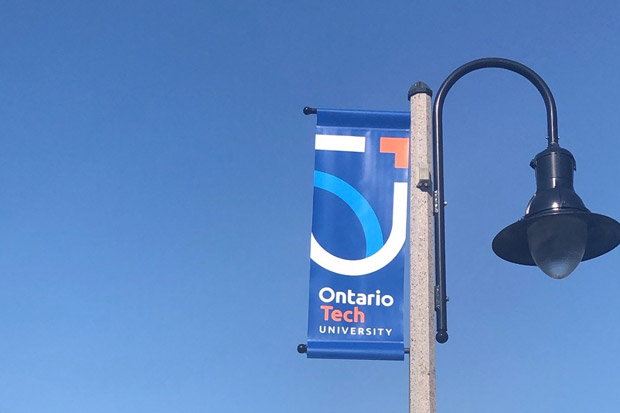Ontario Tech University to host Opioid Crisis Symposium on June 16
Research experts in the faculties of Social Science and Humanities, and Health Sciences co-sponsoring community event
June 8, 2022

The national opioid crisis is a complex public-health issue devastating the lives of many Canadians and their families. Canada recorded a daily average of 12 opioid-related deaths in 2020, and the vast majority of deaths are accidental, typically related to exposure or consumption of fentanyl.
No Canadian city or community is immune to the crisis. There are no easy answers, which is why Ontario Tech University seeks to bring research experts and community organizations together in an effort to find solutions.
On Thursday, June 16, Ontario Tech’s Faculty of Social Science and Humanities will team with the Faculty of Health Sciences to host an Opioid Crisis Symposium. Professors and experts from a range of community organizations and service providers, including Lakeridge Health, the Region of Durham’s departments of Health and Social Services, the John Howard Society, and the Canadian Mental Health Association of Durham will each present their la test research and initiatives.
A virtual panel collaboration between the faculties of Social Science and Humanities, and Health Sciences was held in February of this year. This event on June 16 (from 10 a.m. to 2 p.m.) will take place at Ontario Tech’s Bordessa Hall in downtown Oshawa.
According to the Durham Region Opioid Information System:
- In 2021, the Region of Durham’s Paramedic Services received 998 emergency calls related to suspected opioid overdoses (a jump of nearly 38 per cent over 2020).
- In 2020, there were 93 deaths in Durham Region related to opioid poisoning, a five-fold increase over 2013. Preliminary numbers for 2021 show 118 opioid-related deaths (a 27 per cent year-over-year increase).
Opioid Crisis Symposium organizers say the event will provide clarity on what various organizations are doing to address the crisis in Durham Region, and share findings on the most viable solutions with the community via a post-symposium communiqué.
Ontario Tech University helps industry, community, government and academic partners be more effective by bringing them together with students and researchers to uncover innovative solutions for our partners’ most pressing problems. The university teams with organizations, local and abroad, to bring synergies, ideas and insights into our research and teaching environment—dynamic spaces that contribute to sustainable socio-ecological systems.
Media contact
Communications and Marketing
Ontario Tech University
communications@ontariotechu.ca



